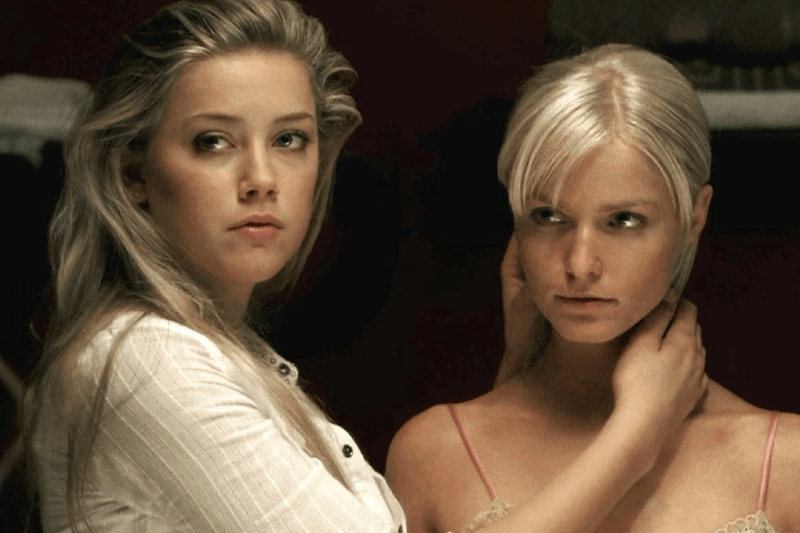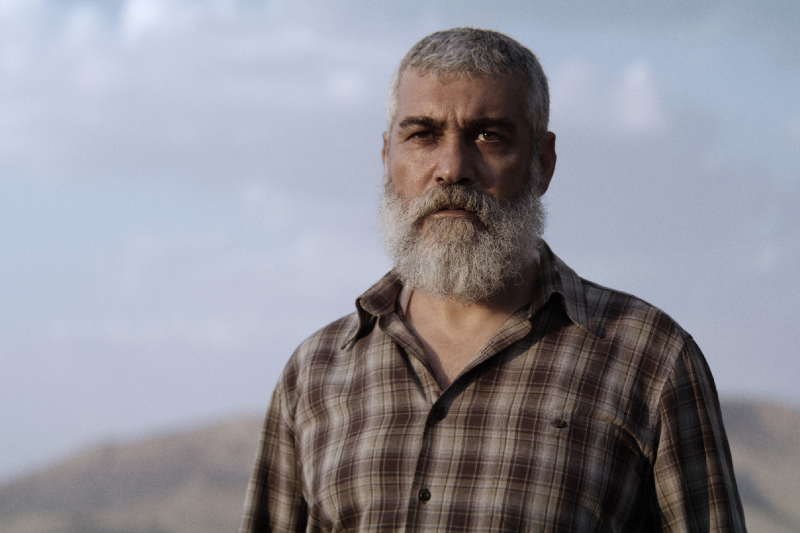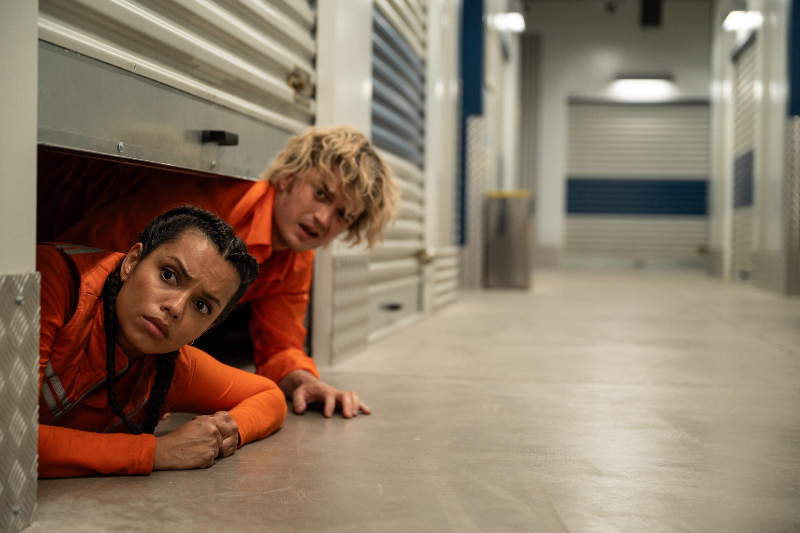Something is rotten in Texas. A blazing sun bakes decomposing cattle carcasses. The open landscape can’t save a group of teens from the slashing horror that awaits them. For most of its runtime, All the Boys Love Mandy Lane presents itself as a run-of-the-mill slasher. But Jonathan Levine’s film is a clever subversion of the genre that deserves a cultural reevaluation for its slick filmmaking, brutal effects, and insightful commentary on how we value and perceive femininity.
Mandy Lane, played to perfection by Amber Heard, is a junior at a non-descript high school in Texas. She starts attracting the attention of popular boys and girls, much to the dismay of her best friend Emmett (Michael Welch). The popular kids invite Mandy to a secluded ranch, where many teens meet grisly deaths.
From its opening, All the Boys Love Mandy Lane shows that it’s a product of its time. The wardrobe for the teenage characters is unmistakably of the mid-aughts. The first scene shows Mandy sauntering down a hallway, turning heads as she goes. “In Anticipation of Your Suicide” by the pop punk band Bedroom Walls plays. The scene primarily cuts between Mandy’s dreamy walk and the jaw-hanging reactions of her peers. But for a split-second, we see scantily clad women pasted on the inside of a locker. This is how they see Mandy. She is not a fully realized person with goals, ideas, and opinions. She’s an object. A pretty thing to look at and lust after and crave. She’s a decoration and a trophy.
At the end of the year, introverted Mandy agrees to attend a party at a secluded ranch. Immediately, the boys start calling “dibs” on her. They don’t know her well, but they’ve seen her. The competition begins immediately. “You know, we’re all trying to get you,” football player Bird (Edwin Hodge) tells Mandy when they’re alone. “Well, trying to get with you.” The slip isn’t subtle, but it speaks volumes. Mandy has walked into the lion’s den. They’re coming to get you, Mandy.
While the boys each try their own schemes to “get with” Mandy, Chloe (Whitney Able) and Marlin (Melissa Price) spar with each other. Chloe pokes at Marlin’s weight while Marlin points out Chloe’s pubic hair, calling it “Sherwood Forest.”
As night falls at the ranch, teenagers start dropping dead. Marlin is the first to go. After giving unreciprocated oral sex to her boyfriend, a killer breaks her jaw by shoving a phallic shotgun barrel in her mouth. The killer is revealed to be Emmet, dressed in a black hoodie and resembling the Columbine shooters. One by one, the teens are dispatched in a gruesome fashion. One scumbag is shot before Emmet swings a rifle like a golf club through his skull. Bird is slashed across the eyes by Emmet’s knife in a scene that causes even strong stomachs to flip over in their seats.
Every teenage character – from the backstabbing girls to the chauvinistic boys and sadistic Emmet – is terrible by design. Mandy, meanwhile, is presumed innocent. She’s clad in white, doesn’t drink heavily, and treats ranch hand Garth (Anson Mount) with respect. She’s our final girl. She checks all the boxes. She’s gorgeous but not mean. She’s abstinent but not prudish. She’ll soothe a fellow girl who’s anxious and shrug off a boy’s uncomfortable advances.
The filmmakers use every tool in the box to make us understand the wonder and majesty of Mandy Lane. When she strips to swim in a lake, the score swells. She’s a work of art! She belongs in a museum! Sun rays beam down to illuminate the shot. She’s an angel. “I love you, Mandy Lane,” one boy yells as she dives into the water. When Mandy is left alone with three boys, the audience is placed in Mandy’s shoes. Each of the boys is staring straight down the camera lens. Their mouths might as well be watering. We can feel her discomfort, even as she remains seated, unmoved. Mandy Lane appears to be the perfect final girl. She’ll defeat Emmet, carry on the memory of her fellow teens, and ride off into the sunset.
But All the Boys Love Mandy Lane isn’t that kind of movie. In the film’s final act, the sun rises, and the action moves outside. The filmmakers employ low angles and keep the horizons on the bottom of the frame. Even in a wide open space with the sun beating down, we don’t feel safe. And we shouldn’t.
Emmet uses a truck to chase down Chloe. Clad in silky pink sleepwear, wide high-angle shots show how hopeless her escape is. Hay bales and barren land provide no solace. She eventually runs back to the ranch house, where Mandy has found the knife Emmet used in an earlier murder. She watches as Chloe runs towards her. Chloe reaches to embrace her friend and meets the business end of a knife with a heart-dropping squelch.
Mandy and Emmet reveal that this is all part of their plan. “I did everything you asked,” Emmet says. The pair had planned a suicide pact, but Mandy never intended to follow through. Like everyone else, Emmet only sees her as an object. He isn’t the nice guy. He’s just another craven teenager who will do anything for his chance to get the girl. Mandy rejects the suicide pact. “Let’s just be friends,” she tells a distraught Emmet.
Emmet pleads with her. “Die with me.”
“I think I’ll finish high school first,” Mandy responds.
Ultimately, Mandy attacks Emmet and leaves him for dead in a pit full of cattle carcasses. She rides off into the sunset with an injured Garth. She’s the final girl and the killer mastermind. She contains multitudes.
All the Boys Love Mandy Lane pits the audience against their own expectations. As Mandy Lane, Amber Heard seems to be the pitch-perfect final girl. But what do we really know about her? What does she like? What is she passionate about? These questions are never answered because none of the characters in the film care enough to ask. By flipping expectations on their head, Levine and company craft a thought-provoking and brutal slasher that leaves the audience reconsidering their relationship with the genre and its stable of tropes.






